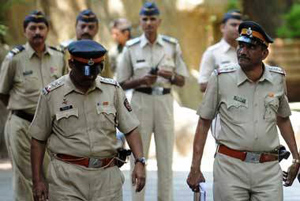Bhopal, Jun 28: Narendra Singh Tomar, an accused in the high-profile MPPEB scam, has died under mysterious circumstances in an Indore jail, adding another murky chapter to the scandal in which 24 accused and witnesses have died so far.
29-year-old Tomar, a veterinarian, complained of chest pain last night and was rushed to Maharaja Yashwant Rao Hospital where he was declared brought dead, official sources said today.
City Superintendent of Police Ajay Jain said a magisterial inquiry has been ordered into the death of Tomar, who was posted as Assistant Veterinary Officer at Raisen before being embroiled in the Madhya Pradesh Professional Examination Board (MPPEB) scam, also known as Vyapam scam.
He was an accused in the Pre-Medical Test conducted by MPPEB in 2009. Tomar was said to have arranged for imposters who had written the papers in place of genuine aspirants.
Tomar's is the 24 death of those named as accused or witnesses in connection with a plethora of criminal cases registered in connection with the scam.
The Special Investigating Team (SIT) probing the scandal had recently submitted a list of 23 deceased to the Madhya Pradesh High Court who had died an "unnatural death". Some reports have claimed 40 such deaths.
The most high-profile death was that of Shailesh Yadav, son of Madhya Pradesh Governor Ram Naresh Yadav. Shailesh, 50, was found dead at his father's residence in Mall Avenue area of Uttar Pradesh capital Lucknow on March 25 this year.
Ram Naresh Yadav, also a former chief minister of Uttar Pradesh, was himself made an accused in the MPPEB scam before getting relief from the court.
Shailesh’s name had cropped up in the multi-crore scam for allegedly fixing the recruitment of 10 candidates as Grade III teachers.
An FIR was registered against Ram Naresh Yadav, 88, by the SIT for his alleged complicity in irregularities in recruitment of forest guards by MPPEB.
However, the High Court later quashed it, holding he enjoyed immunity while in office. Vyapam scam is a massive admission and recruitment scandal involving politicians, bureaucrats and middlemen. Several politicians including former education minister Laxmikant Sharma, a host of officials and scores of aspirants have been arrested in the case. Congress has even accused Chief Minister Shivraj Singh Chouhan of complicity in the scam.





Comments
Add new comment